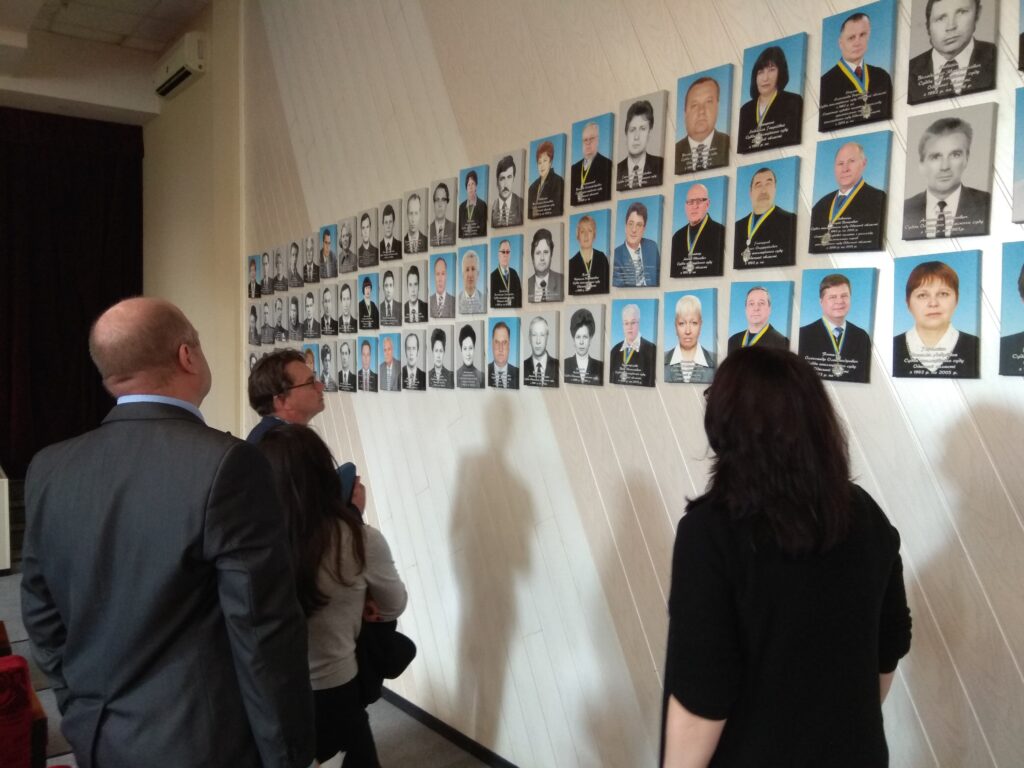On October 10, 2019, Odessa Appellate Court held a regular working meeting within the framework of the International Project “Court, citizens, society, state: cooperation for change”.
During the first official part, the meeting was attended by the coordinators of the international project – Andriy Drishlyuk, Deputy President of Odessa Appellate Court, judges of Odessa Appellate Court, Svitlana Pogorelova, Julian Kravets, Olexander Zhuravlev, Oleg Kopitsa, Ruslan Gromik, international expert of the project Esther De Roy, judge of Amsterdam District Court, Simon Van Der Schenck, Professor Phillip Langbrook, head of the Legal Monitoring Center “Dignity”, member of the journalistic and expert “2 May group” Tetiana Gerasimova.
In this group, the participants of the meeting discussed the latest developments obtained during the implementation of the previous stages of the project, made their proposals on the format of the organization, issues on the agenda and the list of participants of the round table, which is scheduled for the end of November this year, where it is expected to discuss the unified rules for organizing civil and criminal proceedings (hereinafter referred to as guidelines) with stakeholders.
During the second part of the meeting, the event was joined by invited judges of Malinovsky District Court of Odessa, Maxim Murzenko, Olexandr Leonov leaded by the President of the named court, Leonid Lichman, as well as invited representatives of Odessa region Bar Council, including attorneys Olexandr Baiderin, Olexandr Kozlov and Vitaly Cherkes.
The second part of the meeting was dedicated to discussing problematic issues that may arise when implementing Guidelines. Special attention was paid to the risks that may arise in cooperation between a court and the legal community. Attorneys participating in the event voiced their vision of implementing the developed recommendations, demonstrated their own vision of possible resistance from the point of view of attorneys, and outlined possible ways to overcome such resistance and level it.
At the end of the meeting, the participants agreed on further cooperation, outlined immediate plans aimed at organizing a round table at the end of November, stressed the importance of implementing a communication strategy to popularize the project and the importance of introducing guidelines among the legal community, among prosecutors, among employees of pilot courts, who will directly implement these guidelines in practice.
During the break between the two sessions of the working group, the project participants representing the Netherlands, during a tour of the courthouse, had the opportunity to clearly see how the document flow in the court is organized, how court hearings are held, how the courtrooms are equipped, in what conditions and with what workload judges and assistants work, where exactly visitors apply to submit their claims and motions.
















